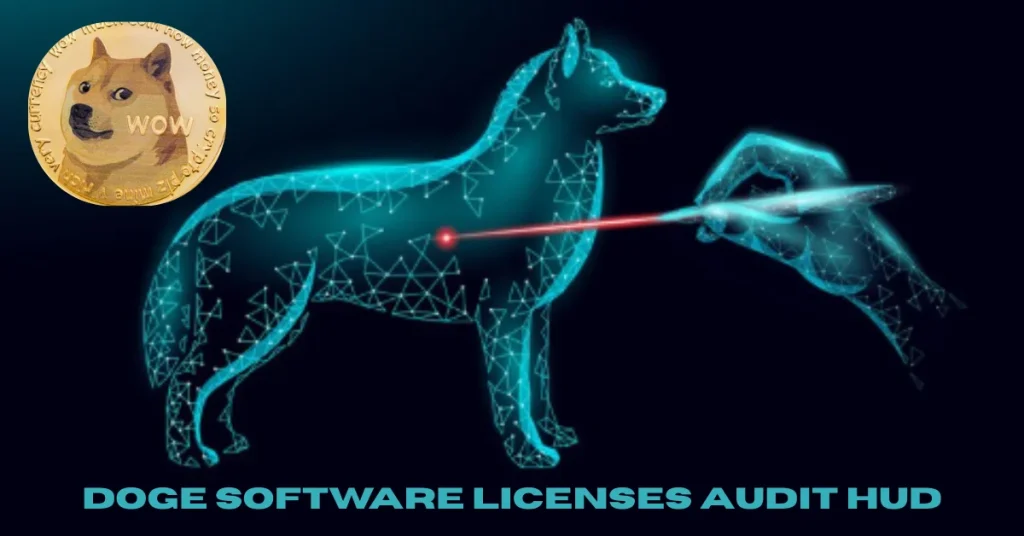Introduction to Doge Software Licenses Audit HUD
The Doge Software Licenses Audit HUD serves as a pivotal tool designed to assist organizations in effectively managing their software licenses. As businesses increasingly rely on a myriad of software applications to drive operations, the complexities surrounding software licensing have escalated significantly. This complexity often leads to heightened risks concerning compliance, potentially resulting in costly legal repercussions and operational inefficiencies.
The primary purpose of the Doge Software Licenses Audit HUD is to streamline and simplify the audit process for software licenses. By providing a centralized interface, this HUD enables organizations to maintain meticulous records of their software usage and licensing agreements. It allows for real-time monitoring and assessment of compliance levels, ensuring that companies are adhering to the licensing terms set by software vendors.
Moreover, the importance of an effective audit HUD cannot be overstated; it not only aids in mitigating risks associated with software compliance but also enhances an organization’s ability to optimize its software investments. By systematically tracking all software licenses and usage across the enterprise, businesses can make informed decisions regarding software procurement and renewals while ensuring they remain compliant with licensing agreements. In essence, the Doge Software Licenses Audit HUD emerges as an indispensable asset for organizations striving for operational efficiency and risk management in a complex software landscape.
Key Features of Doge Software Licenses Audit HUD
The Doge Software Licenses Audit HUD offers a comprehensive suite of features designed to enhance software license management for organizations of all sizes. One of the primary features is the advanced tracking tool that monitors software usage across the entire organization. This allows administrators to gain valuable insights into which applications are being utilized, and by whom, ensuring that software assets are effectively deployed and preventing legal implications related to unauthorized usage.
Another fundamental aspect of the Doge Software Licenses Audit HUD is its compliance check functionality. By aligning current software utilization with licensing agreements, organizations can proactively identify discrepancies that may result in non-compliance. For instance, if a company’s licensing agreement permits a specific number of users but actual usage exceeds this limit, the system alerts administrators, enabling them to rectify the situation swiftly and avoid potential penalties.
Furthermore, the reporting capabilities of the Doge Software Licenses Audit HUD streamline the presentation of critical compliance data. Users can generate customizable reports that provide a detailed overview of software usage and compliance status. This feature is particularly beneficial during audits, as it consolidates relevant information into readily accessible formats. By presenting clear data, organizations can demonstrate compliance and improve decision-making processes regarding future software investments.
Ease of use is another notable feature of the Doge Software Licenses Audit HUD. The user-friendly interface ensures that even those with minimal technical expertise can navigate the system efficiently. Intuitive design elements guide users through the audit process, making it easier to access essential tools and resources. This feature ultimately saves time and reduces the operational burden on IT departments, enabling them to focus on strategic initiatives rather than being bogged down in administrative tasks.
Collectively, these features make the Doge Software Licenses Audit HUD an invaluable resource for organizations striving to streamline their software license management and maintain compliance.
Benefits of Implementing Doge Software Licenses Audit HUD
The adoption of Doge Software Licenses Audit HUD offers organizations numerous advantages that significantly enhance their software asset management practices. A primary benefit is improved compliance with licensing agreements. By utilizing this tool, businesses can better track their software usage, ensuring that they remain within the limits of their licenses. This proactive approach helps prevent costly penalties and legal challenges associated with non-compliance, effectively safeguarding company assets.
Furthermore, the Doge Software Licenses Audit HUD contributes to considerable cost savings. Effective software license management facilitates the identification of underutilized or unnecessary licenses, allowing organizations to eliminate wasted expenditure. By optimizing software utilization, companies can allocate their budgets more efficiently, directing funds toward strategic initiatives rather than unnecessary licensing fees.
Risk reduction is another significant benefit of implementing the Doge Software Licenses Audit HUD. In today’s complex software landscape, organizations face heightened risks related to licensing violations and security vulnerabilities. The comprehensive monitoring capabilities of this audit tool enable businesses to identify potential risks early and take corrective actions before they escalate into major issues. This proactive stance not only mitigates financial risks but also enhances overall operational resilience.
Moreover, the enhanced visibility that the Doge Software Licenses Audit HUD provides is invaluable. Organizations can maintain a centralized view of their software assets, facilitating better decision-making regarding future investments and deployments. By analyzing usage patterns and trends, stakeholders can make informed choices that align with organizational goals. For instance, case studies from companies that have implemented this technology highlight tangible outcomes, such as reduced licensing costs and improved compliance metrics.
Incorporating the Doge Software Licenses Audit HUD effectively transforms how organizations manage their software licenses, leading to increased compliance, cost efficiency, risk mitigation, and enhanced visibility over their software assets.
Best Practices for Using Doge Software Licenses Audit HUD
Effectively utilizing the Doge Software Licenses Audit HUD is crucial for any organization aiming to manage its software assets efficiently. One of the best practices is to conduct regular audits. Scheduling routine assessments helps identify compliance issues early, reducing the risk of costly penalties. Establishing a frequency for audits—whether quarterly, biannually, or annually—ensures that your organization maintains adherence to licensing agreements and optimizes software usage.
Maintaining up-to-date records is another essential practice. Accurate documentation not only facilitates smoother audits but also provides a clear overview of software usage across the organization. This includes keeping track of license expiration dates, renewals, and updates to software deployments. By establishing a centralized repository for these records, teams can access critical information quickly and avoid potential compliance pitfalls.
Training staff on the proper use of the Doge Software Licenses Audit HUD is imperative. Ensuring that team members understand the functionalities of the audit tool enhances its effectiveness. Providing training sessions or workshops can improve familiarity with the audit process, empowering staff to identify discrepancies and take necessary actions proactively. This leads to a culture of compliance and responsible software management throughout the organization.
Additionally, interpreting audit reports accurately is vital. Understanding the data presented by the Doge Software Licenses Audit HUD allows organizations to make informed decisions about software management. Stakeholders should focus not only on compliance results but also on trends and patterns noted in the reports. These insights can guide strategies for software optimization and help allocate resources effectively.
Finally, fostering a mindset geared towards continuous improvement is essential. Leveraging the insights gained from the Doge Software Licenses Audit HUD should lead to an ongoing refinement of software management strategies. By consistently evaluating processes and results, organizations can evolve their practices, ensuring they stay compliant and maximize the value of their software assets.

